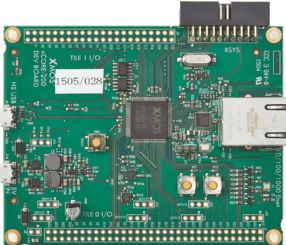
The audio processing landscape is vast and varied, with numerous players vying for the top spot. Among these, the XS3 Core Audio Processor has emerged as a notable contender. But how does it stack up against XMOS xCORE-200? In this article, we’ll delve deep into a comparison between the XS3 and XMOS xCORE-200.
XS3 Core Audio Processor: Functions, Features, and Capabilities
- High-Performance Audio Processing: The XS3 Core Audio Processor is designed specifically for high-performance audio processing tasks.
- Multicore Architecture: It features a multicore architecture that allows for parallel processing of audio tasks.
- Real-time Processing: The XS3 offers real-time audio processing capabilities, ensuring minimal latency in audio applications.
- Flexible I/O: The XS3 provides a range of I/O options, making it adaptable to various audio interfaces.
- Integrated Peripherals: Similar to the xCORE-200, the XS3 also comes with integrated peripherals to support audio applications.
- Development Support: XMOS offers comprehensive development support for the XS3, including tools, libraries, and documentation.
XMOS xCORE-200: Functions, Features, and Capabilities
- Multicore Microcontroller: The xCORE-200 is a multicore microcontroller that provides a combination of parallel processing and flexible I/O.
- High-Performance: It offers high-performance computing capabilities suitable for a range of applications, including audio and industrial control.
- Deterministic Real-time Control: The xCORE-200 provides deterministic real-time control, making it suitable for applications that require precise timing and control.
- Configurable I/O: It offers configurable I/O ports that can be used for various interfaces, including USB, Ethernet, and high-resolution analog.
- Integrated Peripherals: The xCORE-200 comes with integrated peripherals, including USB PHYs, Ethernet MACs, and ADCs.
- Scalability: The architecture of the xCORE-200 allows for scalability, enabling developers to add more cores or change the configuration as needed.
- Development Tools: XMOS provides a range of development tools, including the xTIMEcomposer Studio, to help developers design, debug, and deploy their applications.
Comparison:
- Purpose: While both processors are designed for high-performance tasks, the XS3 is specifically tailored for audio processing, whereas the xCORE-200 is more general-purpose with capabilities for audio and industrial control.
- Real-time Control: Both processors offer deterministic real-time control, but the XS3 emphasizes real-time audio processing.
- I/O Capabilities: Both processors provide flexible I/O options, but the xCORE-200 seems to have a broader range of interfaces, including USB, Ethernet, and analog.
- Development Tools: Both XMOS processors come with development tools, but the tools might differ based on the specific application (audio vs. general-purpose).









